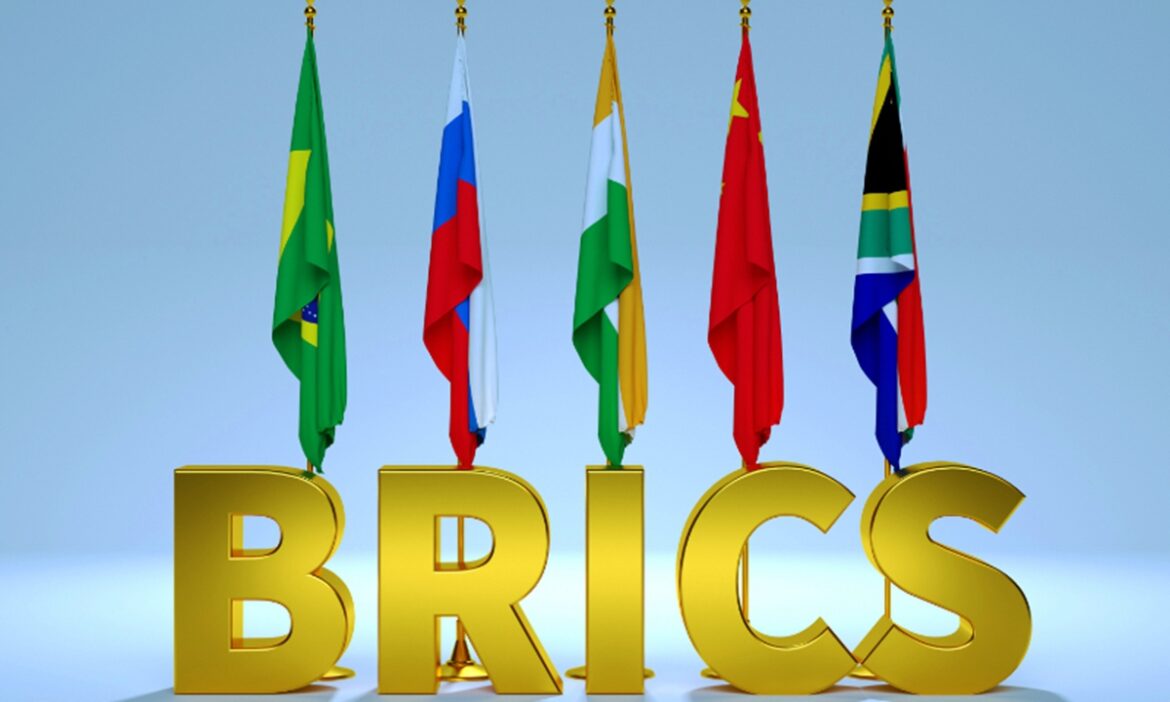With the upcoming annual BRICS Summit in Kazan next week, speculation about a potential gold-backed digital currency and alternative payment system has been heating up. While BRICS members have discussed such a currency on and off since the 2010s, the Russian government started dropping stronger hints about it in 2022 after a tidal wave of U.S. sanctions against it.
By 2023, these were no longer mere hints—Russian President Vladimir Putin was openly promoting the idea of such a currency and de-dollarization generally, with the proposed BRICS Unit becoming a major talking point at last year’s South Africa Summit. As the 2024 Kazan Summit approaches, the Russian Ministry of Finance, Bank of Russia, and management consulting firm Yakov and Partners have released a paper detailing what such a payment system might look like. DLT is the preferred approach
The paper outlines multiple approaches as to how a BRICS cross-border payment system might look. Four proposals are outlined:
- An international network of commercial banks that can settle cross-border payments in local currencies.
- Direct links between BRICS countries’ central banks, again using national currencies.
- Centers for directly trading commodities like gold, oil and gas, and grain.
- A digital ledger with settlement by digital-currency-backed tokens and CBDCs.
After considering all four, the paper makes clear that the DLT option is the preferred option. Perceived benefits include the removal of intermediaries and the compliance checks they necessitate, as well as the speed and cost savings such an efficient system would bring.
While the paper does not directly state that such a system is being created, when taken together with Alexander Bubakov’s recent comments to Russian media, it provides plenty of food for thought as the Kazan Summit approaches.
Is a BRICS payment system just Russian wishful thinking? While there’s no technical reason why a BRICS payment system can’t be created, the politics of the bloc aren’t so simple. BRICS was initially comprised of Brazil, Russia, India, Chin
Firstly, we have Argentina as one of the newest members of BRICS. President Javier Milei has made his disdain for left-leaning politics known, putting him at odds with Brazil, China, and several other names on this list. With inflation of 211.4% in 2023 in Argentina, Milei seeks to dollarize the economy and eliminate the Argentinian Peso. So, his government is unlikely to side with any coalition trying to undermine U.S. financial power and hurt the dollar.
Next, we have India and China. While they trade ($135.98 billion in 2022), the trade is skewed heavily in China’s favor, and border skirmishes between them have been a regular occurrence. In 2020, a clash in the Galwan Valley left 20 Indian soldiers and an undisclosed number of Chinese soldiers dead. As India’s economy grows and China’s slows, this tension could increase significantly as the two Asian giants tussle for power.
We then come to the Islamic nations in BRICS. Saudi Arabia and the UAE not only produce vast quantities of oil, but they are more moderate and pro-reform in their worldviews, putting them at loggerheads with the fundamentalist Iranian regime. Saudi and the UAE have both engaged in peace initiatives with Israel, creating further tension between them and Iran. In recent weeks, Iran has directly threatened both, warning them not to cooperate or align with Israel or face repercussions. Any conflict between Iran and these two would likely drive oil prices up significantly, incurring the ire of China, the world’s biggest oil importer.
Finally, we have Russia itself. After invading Ukraine in February 2022, it became the most sanctioned country in the world. Even Chinese firms have begun to distance themselves from Russia, fearing secondary sanctions. Huawei has reduced Russian operations, and Sinopec recently withdrew from a major Russian oil and gas project. If even Russia’s staunchest ally is backing slowly towards the door, it’s unlikely any of the others on the BRICS list will rush toward it.
In summary, all the technology to create an independent BRICS payment system and currency is available, and there’s nothing to say it won’t happen. However, whether it will gain significant traction is still debatable. As this overview of BRICS nations has shown, they all have interests and are not necessarily aligned. In fact, in some cases, they are diametrically opposed.
- Binance Secures Full Virtual-Asset Services Provider License in Dubai
- Venezuela Turns to Crypto for Oil Sales Amid U.S. Sanctions
- Brazil’s Postal Service Seeks Blockchain, AI Solutions for Operations
- Japan’s E-Commerce Giant Mercari Plans to Accept Bitcoin Payments
- Dubai Building 17-Story Crypto Tower with 150,000 Sq Ft For Blockchain Firms
- Japan Tests The Use of Surplus Solar Energy to Mine Bitcoin






